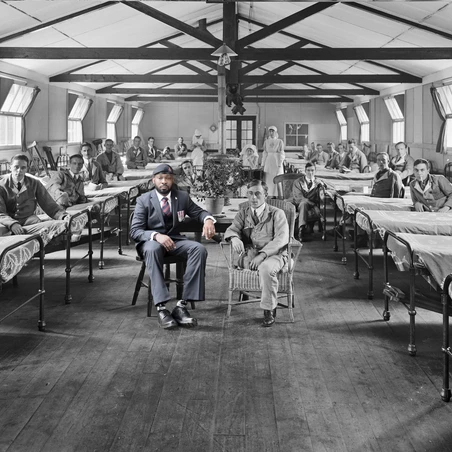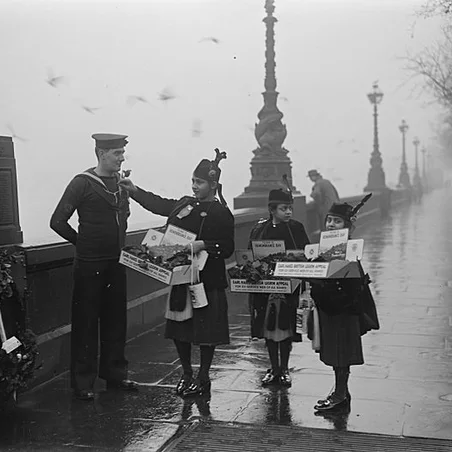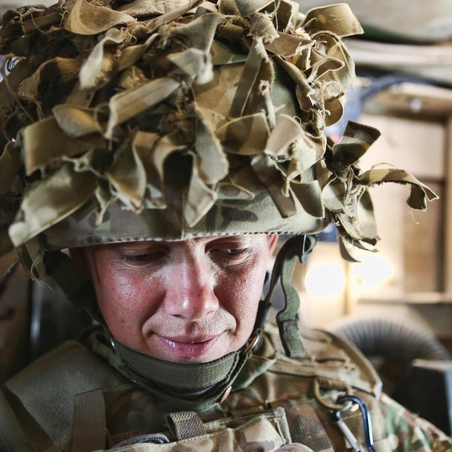Our proud heritage and 100 years of experience supporting the Armed Forces community have built the strong foundations of an organisation fit for the next 100.
We've been supporting servicemen and women, ex-serving personnel and their families since 1921.
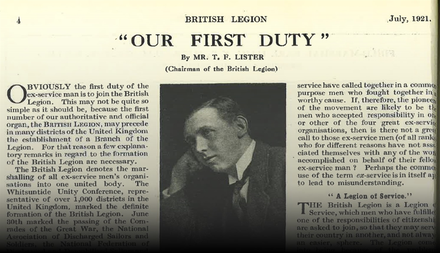
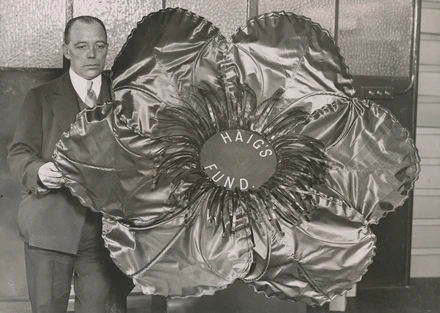

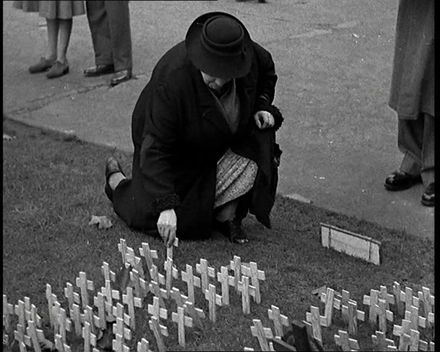
1920s
After the First World War, Britain's economy plummeted, leaving 2 million people unemployed in 1921. Over 6 million men had served in the war. Of those who came back, 1.75 million had suffered some kind of disability and half of these were permanently disabled.
On 15 May 1921 The British Legion is formed, bringing together four national organisations of ex-Servicemen that had established themselves to support those who had suffered as a result of service during the First World War.
The Women’s Section of the British Legion is swiftly established. In September 1921 Anna Guérin arrives from Canada and persuades the Legion to adopt the Poppy as a symbol of Remembrance. That same year the first Poppy Appeal raises £106,000 (£5.21m in 2021) and 2,500 branches of the British Legion are established across the country.
The following year the Legion’s Poppy Factory opens in the Old Kent Road, London where 40 disabled men manufacture 1,000 poppies a week.
The first Festival of Remembrance is held at the Royal Albert Hall in 1927, with the first Field of Remembrance appearing on the lawns outside Westminster Abbey in London a year later.
*Images: Article by Tom Lister from July 1921 | Bill Williams Factory Foreman with the largest poppy ever made | Wreath-making | Field of Remembrance.
Poppy Factory in 1923
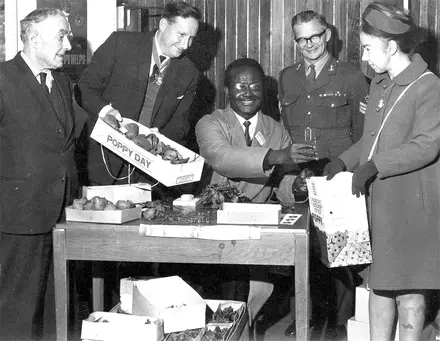


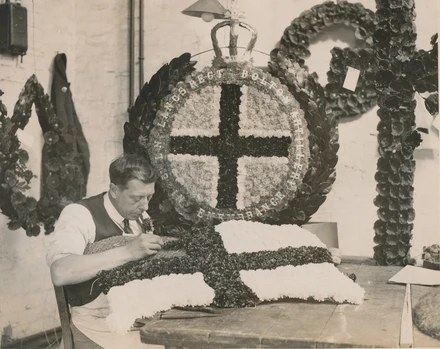
1930s
Through the 1930s the Poppy Appeal goes from strength to strength and the British Legion purchases Haig House in Ypres, Belgium to provide a base for pilgrims visiting the battlefields of the First World War.
At home the abdication of Edward VIII leads to George VI taking the throne, whose daughter Princess Elizabeth later becomes our patron.
In 1938 the Poppy Appeal raises £600,000 (£40m in 2021) and it is spent on supporting those who continue to suffer as a result of service during the First World War. Today that figure stands at over £100 million.
Attempts to reconcile relations and spread peace between German and British soldiers is well-received but ultimately fails as the following year, on 3 September 1939, the Second World War breaks out after Poland is invaded by the Nazis.
*Images: Poppy Day | Girl with giant poppy | Making poppies and wreaths in 1931
1940s
The British Legion also plays a key role in supporting veterans through injury and illness. They take over a 50-bed hospital at Arlesley, Bedfordshire to treat patients with rheumatism and arthritis, and support the work of the National Spinal Injuries Unit at Stoke Mandeville where they champion sport and physiotherapy as treatment for those with spinal injuries.
After Victory over Japan in the Far East brings an end to the Second World War, Her Royal Highness Princess Elizabeth attends the Festival of Remembrance at the Royal Albert Hall for the first time. Since then, Her Majesty Queen Elizabeth II only missed the Festival of Remembrance twice.
1950s
In 1950 the number of British Legion branches peaks at almost 5,500. The British Legion also has four ‘country’ homes and four ‘convalescent’ homes.
Five years after the end of the Second World War the Legion has provided over 4,000 loans and helped men to set up enterprises as chimney sweeps, steeple jacks, dentists, cosmetic manufacturers and rug makers.
With troops fighting in the Korean War during a harsh winter, the British Legion and its Women’s Section help produce 1,500 woollen garments at short notice in 1951. British troops are also deployed in the Malayan and Cyprus Emergencies, and to Egypt during the Suez Crisis.
In the Summer of 1953 the British Legion hosts galas and balls across the world to mark the coronation of Her Majesty Queen Elizabeth II. Later in the year the Festival of Remembrance is televised for the first time on the BBC.
1955: The growth of Women's Section
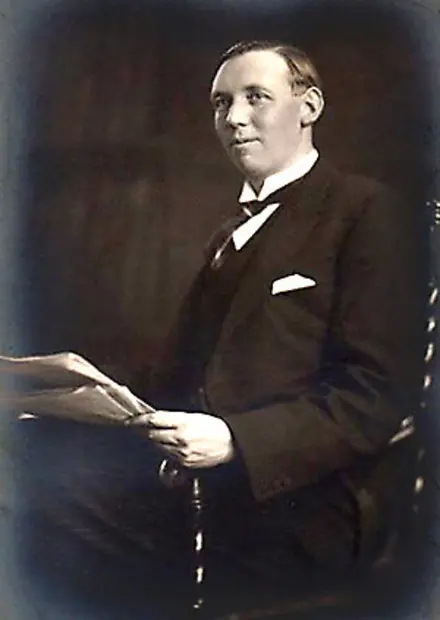
1960s
In 1961 women are admitted to the National Executive for the first time. In the same year the British Legion’s first chairman is knighted and becomes Sir Frederick Lister to mark the 40th anniversary of the founding of RBL.
Two years later Galanos House care home is opened in Warwickshire thanks to a legacy from Christos Galanos, a Greek businessman, who much admired the British. It is our first care home to have single bedsitting rooms rather than wards.
In the same year the Aden Emergency began after a grenade attack on the British High Commissioner.
Sir Frederick Lister’s death in 1966 marks the end of an era - he was the last surviving member of the group who helped form the British Legion in 1921.
In 1968 The Troubles in Northern Ireland begin in a conflict that will last almost 30 years.
Dennis Cadman becomes the first man who served in the Second World War to lead the British Legion in 1969.
*Image: Portrait of Sir Frederick Lister
1970s
In 1971 the British Legion marks its 50th anniversary and becomes the Royal British Legion. A rededication ceremony takes place at Westminster Abbey and 4,000 members and guests attend a royal garden party at Buckingham Palace. RBL also joins the World Veterans Association.
British troops remain in Northern Ireland throughout the decade as The Troubles continue.
At the Annual Conference in 1973, RBL resolves that the wording for the Cenotaph service should change to include ‘all who had died in the service of their country’. The change is finally accepted in 1979.
Charles Busby, who flew with the RAF during the Second World War, becomes the first Chairman who is not from the Army in 1975.
Two years later the Royal British Legion parades at Windsor Castle as part of Queen Elizabeth II's silver jubilee celebrations.
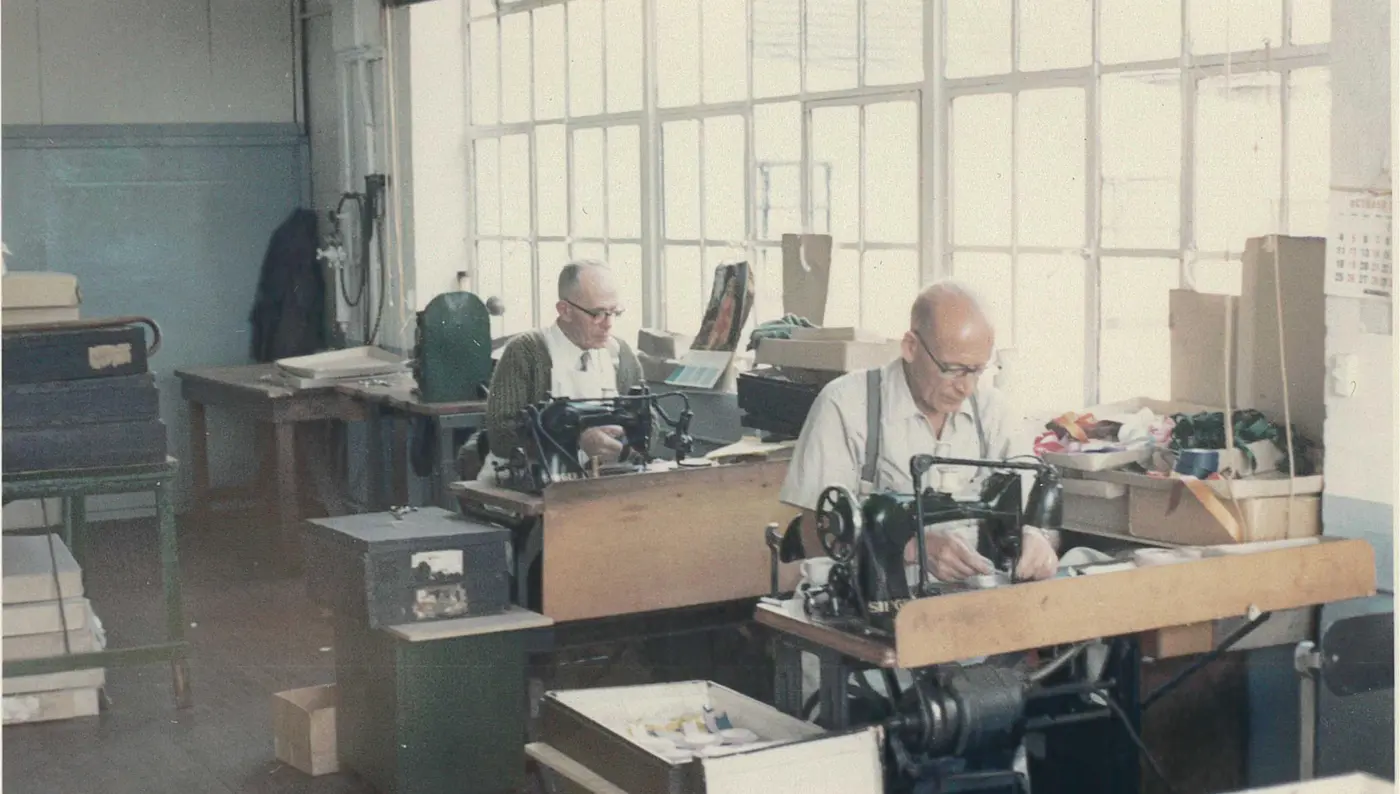
1980s
1990s
1995 marks the 50th Anniversary of VE Day and sees a parade of RBL Standards in London. HM Queen Elizabeth II lights a beacon in Hyde Park, the signal for a chain of a thousand beacons that flare throughout the UK.
That same year RBL launches its Pedal to Paris fundraising event – a four-day cycling challenge from London to Paris, culminating in a Tour De France style finish at the Arc de Triomphe.
RBL also successfully campaigns to reintroduce the Two-Minute Silence at 11am on 11 November. John Major is the first Prime Minister to officially mark the Two Minutes Silence since the Second World War.
The Spice Girls join Vera Lynn to launch the Poppy Appeal in 1997 with funds up by over £1 million.
The following year British forces lead a NATO intervention in the Kosovo War, lasting until 11 June 1999.
2000s
Armed Forces personnel are deployed on Operation Herrick in Afghanistan and Operation Telic in Iraq. They are also deployed in Sierra Leone due to the outbreak of civil war.
2002: Commonwealth contribution
In the same year HM Queen Elizabeth The Queen Mother dies. She served as Patron of the Women’s Section from 1924 until her death and is succeeded by Her Royal Highness Princess Anne.
In 2007 Her Majesty Queen Elizabeth II unveils the Armed Forces Memorial at the National Memorial Arboretum - a national monument to those who have lost their lives on duty or as an act of terrorism since the Second World War.
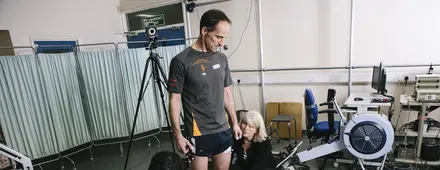
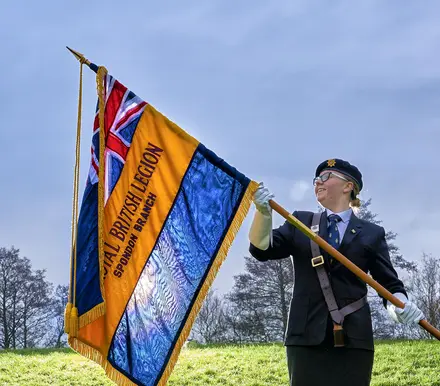
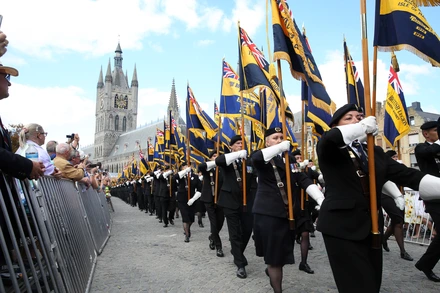
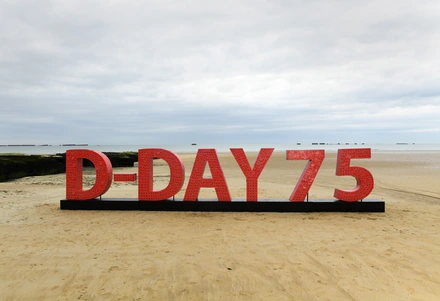
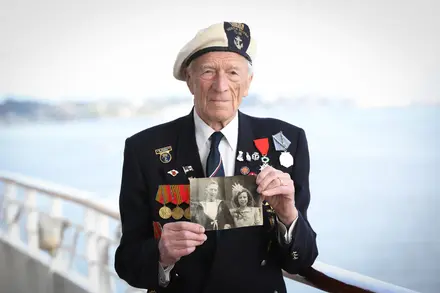

2010s
In 2011 Poppyscotland merges with the Royal British Legion to form the largest charity group supporting the Armed Forces community across the UK.
In May of the same year the withdrawal of the last remaining British troops in Iraq is completed.
RBL funds the establishment of the RBL Centre for Blast Injuries Studies at Imperial College London, using pioneering science to prevent blast injuries and care for those with blast injuries.
The Armed Forces Covenant is placed in legislation after RBL’s Honour the Covenant campaign - a promise by the nation ensuring that those who serve or who have served in the armed forces, and their families, are treated fairly. RBL also successfully campaigns for a question about the Armed Services to be included on the census for the first time.
In 2015 airstrikes mark the start of UK military action in Syria as part of Operation Shader.
The Centenary of the First World War is marked by Blood Swept Lands and Seas of Red at the Tower of London where 888,246 ceramic poppies are planted to represent each life of a member of the British Armed Forces lost in the conflict.
In 2018 over 1,000 RBL members travel to Ypres and parade to the Menin Gate to mark the 90th anniversary of the 1928 Great Pilgrimage when veterans and widowed wives visited the battlefields of the Somme and Ypres.
The following year D-Day 75 is marked by a seven-day cruise around the Channel with 255 veterans, their carers and support staff aboard the MV Boudicca, culminating in a service of thanksgiving on the beaches of Normandy.
*Images: Veteran receiving treatment at RBL Centre for Blast Injuries Studies | Youth member Maddie Hempell holding her branch Standard | Maddie Hempell at GP90 | D-day 75 poppies beach installation | D-Day veteran Alec Penstone on the D-Day 75 Voyage of Remembrance | MV Boudicca
2020s
RBL Branch Community Support plays a vital role in keeping in touch with vulnerable veterans in communities around the UK and all over the world.
VE Day 75 is marked with virtual celebrations online.
A socially distanced ceremony at the National Memorial Arboretum attended by veterans and representatives from the 14th Army, the Gurkhas and prisoners of the Japanese is held to mark VJ Day 75.
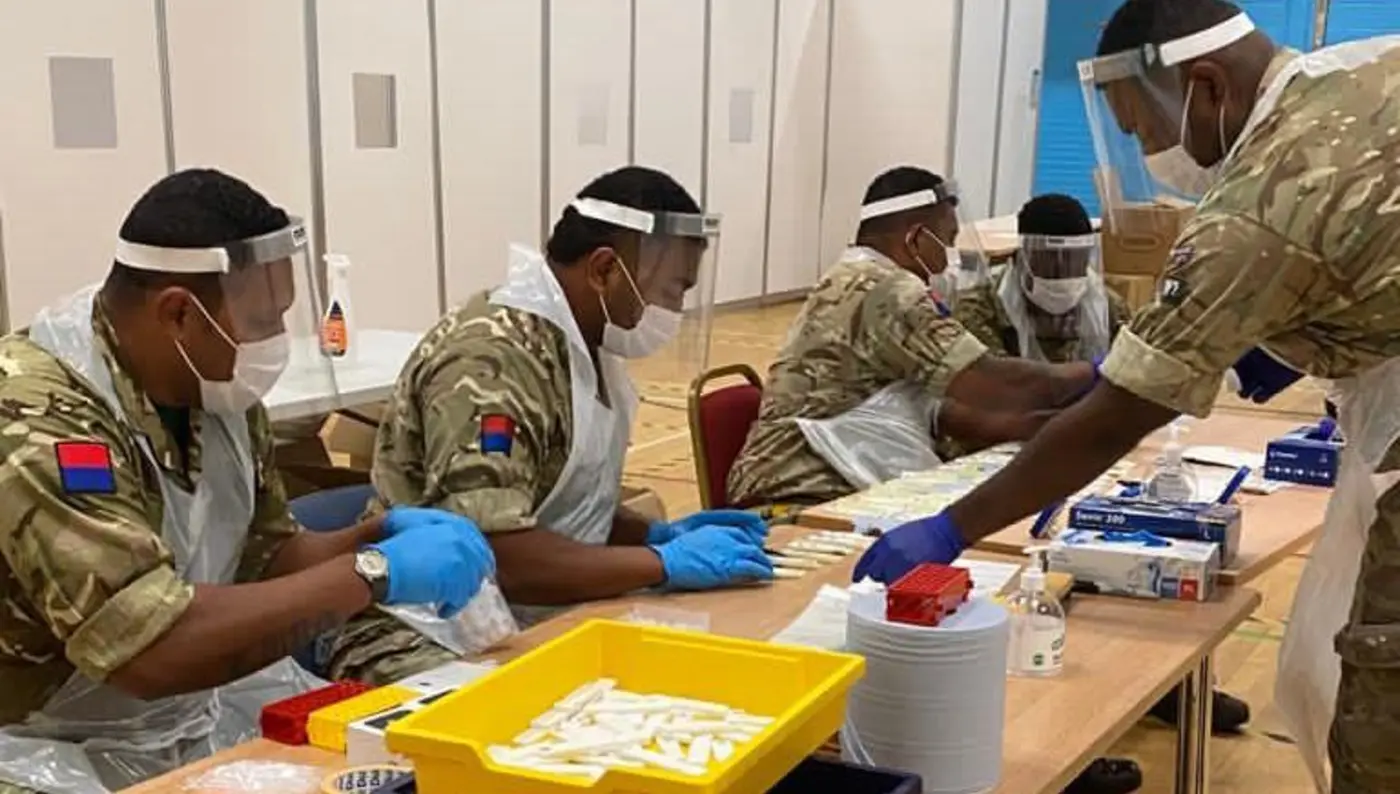



.jpg?sfvrsn=e0967d6a_2&method=CropCropArguments&width=600&height=450&Signature=69E99635D651F63A7940FA9CC4C8C73DDC388334)
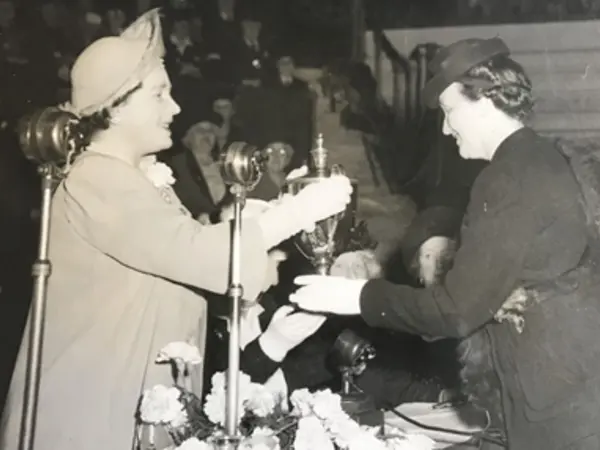

.jpg?sfvrsn=6d458563_0&method=CropCropArguments&width=600&height=450&Signature=E04C1F9B0ED97386EEBF4217C2D4E2960ABC68C2)



